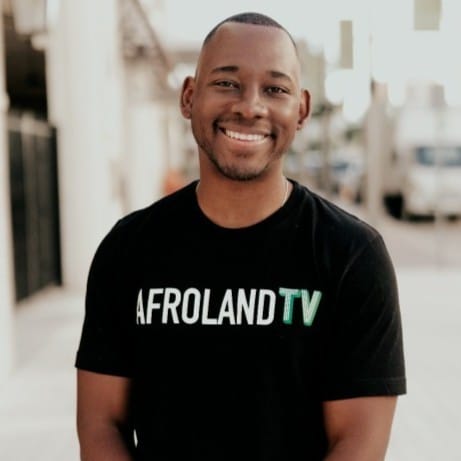As a black entrepreneur in the media and entertainment space, I feel like I’m in a unique position to really reflect on the state of diversity within the streaming world.
Let me start out with my first hat: black entrepreneur.
I have seen a lot of progress in the startup ecosystem throughout the last few years. For starters, Venture Capitalists have become aware of the stories that are being told by the black community, which leads to their interest in more diversified companies. It is also important to note that there has been a recent commitment to Black companies from big corporations like SoftBank, which made a $100M commitment. This opens many doors for us and creates excitement as Venture Capitalists are starting to set aside funds to support more underrepresented creators. Much of this, of course, has been sparked by the tragic death of George Floyd last year.
But, we still see barriers to entering the media and entertainment space as underrepresented creators of color. There is this preconceived notion which causes people to question the legitimacy of our stories since we do not have access to networks like our white counterparts. The problem, as I see it, is that any black creators are not used to the startup ecosystem and have not had the educational opportunity to build an understanding of which might enable them to succeed. This makes it harder for us to get into rooms with investors. When we do, lacking the knowledge of how to approach the conversations, we are often faced with an automatic “no.” While that “no” may not be racially motivated, how we approach the conversations with investors prevents access to the capital that is out there for diversified voices.
While there are corporations setting up funds for underrepresented founders the education about the startup system is just as important and valuable to us. Without that educational approach to network building, it is so much more difficult to reach out, make connections, and get a foot in the door.
Now, let’s talk about the media and entertainment space.
Much like with startup opportunities and the VC community, we’ve seen improvements in the entertainment industry, but there is still so much room for growth. We see initiatives emerge within companies like Comcast and NBCU that are focusing on Black stories. One of the largest paid TV providers in the U.S., Xfinity, has a channel called The Black Experience which showcases Black stories from founders of color. Netflix is also expanding sections for Black stories on their platform to provide more diversified content. These all contribute to highlighting diverse stories, but I think that in the future, the stories will no longer need to be segmented. There shouldn’t be a need for a section for Black movies, but instead, our stories should be integrated alongside other Hollywood names. There is a misconception that if someone is watching a Black film that it is not going to be a compelling story or up to par with the production level of other Hollywood films. In Western movie theaters, you won’t see African movies premiere the same way that they do on the African continent. But if we can get past the idea that Black stories and African stories are somehow less than their white or Western counterparts, we will get away from the need to segment. What we want is to not only see the newest Spiderman but also the newest African blockbuster premiering side by side. I have noticed that in the film industry in Ghana, Nigeria, and South Africa, the movie theater listings are still booked out with those Hollywood and Bollywood films. But, when I return home to the states, I only see those Hollywood movies. Our stories are not receiving that same reciprocity. Once Black stories are marketed like other Hollywood movies, we will see more legitimization of our stories that are on par with the greatest directors and products coming out of Hollywood.
But that leads me to the big question: “why are Black and African films not getting a chance to premiere in American theaters?”
My perspective is that it is based on money. The exhibitors in the Western world believe that there is no audience for our content, so they are not willing to put the advertising dollars into something they believe mass audiences will not commit to watching. They perceive that there is no value when these productions are not even introduced or advertised anywhere, removing them from the playing field. Those same mass audiences don’t know that the films even exist since they do not have the same visibility through streaming platforms in general. There may be an Oscar awarded for a documentary, but then there is no follow through with any theatrical distribution. The thought is that people will only pay for what they are familiar with, so African movies cannot be premiered here if the audiences don’t know that they exist.
When it comes down to it then, marketing needs to improve. The conversations between African moviemakers and Western studios need to happen more often. They aren’t happening nearly enough if at all. But even if those conversations happen, if we want them to be successful, we as Black people, have to value our content first. This helps broadcast that our content is comparable to the best titles out there. It is going to take time, but I believe that audiences will come to have a better understanding of what African content is. It’s just a matter of time and awareness.
But we have to tackle a bunch of things before people will be aware of our stories. The main issue is to tackle the Western perception that our stories lack value . But like I said, that all starts with us. That’s one of the big reasons for starting AfroLandTV: we can help represent African titles to help with distribution to mass audiences. Only that will get the exposure to build and appeal to the content. Once we see a show getting watched a hundred million times each year, those bigger networks will come calling since it is all about the numbers.
We have a lot of pride in building a foundation of our stories and controlling the narrative and the distribution of them as well. If we cannot control where the content can be consumed, there is another hand in the pot that requires us to get a “yes” or “no” in order to distribute the content in the first place. That gatekeeper has to be removed for our diverse stories to reach a world audience.
Right now, the content on AfrolandTV is free. But that is just an initial strategy, to help build the awareness in the Western markets for content from the African diaspora. But I know that the African and Black film industry is not going to grow if the filmmakers aren’t making any money. That’s why we have partnered with Freewheel where we are getting premium advertising money for our content. Because of this, a filmmaker can make much more distributing content on AfroLandTV rather than YouTube which becomes a carrot to draw filmmakers in. The goal is to make money, but also gain that content exposure to build the structure of a more sustainable and global African film industry which then promotes filmmakers to continue creating content.
To make improvements to the industry, the focus on diversifying stories from a startup perspective has to be a priority. And this has been happening, even if it is slowly. Thankfully, that has made it easier for creators of color to close deals in meetings as a result of the unique content we can provide. Now, when black filmmakers get into the rooms with film and studio executives, , they are put into a position of power since they know that these corporations are looking for the content that they have. Providers like AfroLandTV are well suited and well equipped with the knowledge of what sets us apart from a unique selling perspective during those conversations. This has helped us close deals faster such as launching on Comcast X1 and Plex since they are willing to listen to us, see the types of stories that we have, and take a chance on us.
Although progress has been made, there are still big strides needed to move forward, to get the global distribution of African and Black stories alongside Western stories, to ensure underrepresented creators, to ensure all voices are heard. The continual exposure and support from VCs and larger corporations will help lead to further success in building a global platform and market for African and Black stories.

Michael Maponga
I'm the founder and CEO of AfroLandTV, a Techstars | Comcast NBCUniversal backed online streaming platform for Pan African TV shows and movies. AfroLandTV is alumni of the 2020 startup class of the European Film Markert (Berlinale). The largest film festival and market in the world hosted annually in Berlin, Germany.
I'm also an actor with two international box office films (Finding Mother 1 & 2), and winner of the Entrepreneur Trailblazer Award by the Professional Association of Young Africans. My focus is on VOD Distribution, AdTech, TV advertising, Film/TV Licensing, Production, International Sales, Business Development, and Acting.
- This author does not have any more posts.


